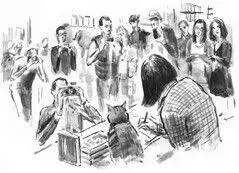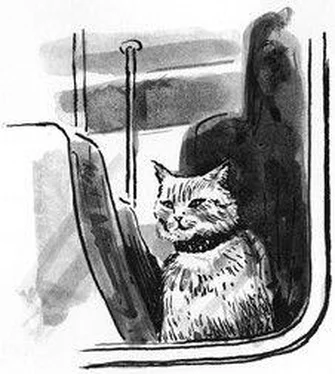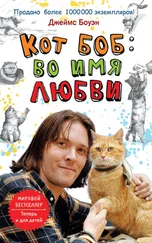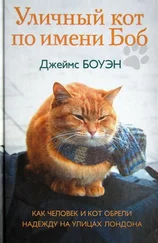
In the hours before the signing, I was due to be filmed by a photographer and cameraman from the Reuters international news agency. He wanted to take a series of photos of Bob and I going about our normal, day-to-day life, travelling around on the tube then busking on Neal Street. I was quite glad of the distraction. By the time I’d finished with the photographer, it was early evening.
A damp chill was beginning to descend when we got back to Islington and made the familiar walk from Angel tube station. There was no sign of the guy who had ‘acquired’ my pitch outside the tube station. A flower seller told me that the guy and his dog had been causing all sorts of trouble and had already been stripped of the pitch by the co-ordinators. There was now no one from The Big Issue selling magazines outside Angel.
‘What a waste,’ I said. ‘I’d built that pitch up into a nice earner for someone.’ But that wasn’t my concern any more. I had other things to worry about.
Bob and I walked through Islington Memorial Park towards Waterstones. We were early so I let Bob do his business and sat on the bench to enjoy a quiet cigarette. Part of me felt like a condemned man, enjoying a final, fleeting moment of pleasure before going to face the firing squad. But another part of me felt a sense of anticipation. I felt like I was on the verge of a fresh start in my life; that, for want of a better phrase, a new chapter in my life was beginning.
I felt queasier than ever. I had so many conflicting thoughts fighting for space in my head. What if no one turned up? What if loads of people turned up and thought the book was rubbish? How would Bob react if there was a crowd? How would people react to me? I wasn’t a typical author. I wasn’t a polished public personality. I was a guy who was still operating on the fringes of society. Or at least, that’s how it felt. I knew people would love Bob, but I was terrified that they’d hate me.
I drew on the last remnant of my cigarette, making it last for as long as possible. The nerves had solidified inside me to such an extent that I felt like someone had punched me really hard in the stomach.
Luckily Bob was being extra cool for both of us. He spent a couple of minutes rooting around in a favourite little spot then sauntered back to me. He just gave me a look as if to say: ‘it’s all right, mate, it’s all good.’
It was uncanny how he was able to calm me.
Arriving at the bookshop about half an hour before the signing was due to start, there were four or five people standing in line outside. Ah well, someone has turned up at least , I said to myself, relieved. They all smiled at us and I gave them a sheepish wave. I couldn’t quite get my head round the idea that people were giving up an hour of their evening to come and meet us. There were a few more people inside the store as well. They were all stood in a queue to pay and were all holding copies of the book.
Alan, the manager, invited me upstairs to the staff room where I could wait for the signing to start.
‘You can have a glass of wine and Bob can have a saucer of milk. You can take it easy for a minute before things get under way,’ he said, sensing my nervousness.
I wasn’t sure whether to keep a clear head or to have a drink for Dutch courage. I decided on the former. I’d have a glass of wine afterwards.
Belle, Mary, Garry and a bunch of people from the publishers were there to wish me luck. There was also a stack of books for me to sign for general sale in the store. Someone had come up with the rather bright idea of having a paw-shaped stamp so that Bob could also ‘sign’ each book. I got to work scrawling on the first copies. Belle added the final flourishing touch with the paw stamps. There were at least two dozen books in the pile. Were they sure they’d even sell this many?
The staff from the store seemed positive. At one point one of them arrived beaming.
‘It’s stretching all the way around the block,’ she smiled.
‘What is?’ I said, stupidly.
‘The queue. It’s stretching all the way back around the corner. There’s probably a hundred people there with more joining all the time.’
I was speechless. I didn’t think it was possible to feel any more anxious, but somehow I did. There was an open window next to me. For a moment, I thought about climbing out of it, shinning my way down the drainpipes and making a hasty escape.
As the clock ticked down towards 6pm, Bob climbed up on my shoulder and we headed back down to the main store. On the landing at the bottom of the first flight of stairs, I knelt down and took a sneaky look down on to the shop floor. My heart jumped into my throat. It was heaving with people.
A table stacked with books had been laid out ready for me and Bob. The line of people waiting to file past it was stretching along the bookshelves all the way to the entrance and out into the dark March evening. They were right. There must have been a hundred people and more in it. At the other side of the store, a separate queue of people were lined up, buying copies of the book. There was even a group of photographers and a television cameraman there.
It was surreal, an out-of-body experience. Until now we’d been hidden from view but as we started walking down the final flight of steps, the cameras began flashing and photographers began shouting.
‘Bob, Bob, this way, Bob.’
There was even a ripple of applause and a couple of cheers.
My years on the street with Bob had taught me to expect the unexpected. We’d learned to adapt, to roll with the punches, sometimes literally. This time, however, it felt like we were entering totally uncharted territory.
One thing was clear, however. We’d come too far to pass on this chance. If we took it, our time on the street might, just might, start drawing to a close. That new chapter might just open up for us.
‘Come on, Bob,’ I whispered, stroking the back of his neck before taking a final, deep breath. ‘No turning back now.’

That night in March 2012 was probably the most important of my life. Afterwards there were no more doubts. It really was a new beginning for me and Bob. The book signing in Islington was a success way beyond my expectations. Paul McCartney didn’t quite make it, but more than 300 other people did. The numbers clamouring to meet us caught everyone by surprise, even the bookshop, who were cleaned out of every one of their 200 or so copies within half an hour.
‘So much for my prediction that we’d only sell half a dozen,’ I joked with Alan, the store manager, when I eventually got to share a glass of wine with him after three hours of signing and interviews.
No one could work out how we’d drawn such a big crowd. The flyers and the publicity had obviously played their part. We’d set up a Twitter account which had attracted a hundred or so followers, but even then it didn’t quite explain the passion with which people had embraced Bob and myself.
It was the first sign that something amazing was about to take place.
When A Street Cat Named Bob went on general sale two days later it seemed to strike an immediate chord and became, what The Times described as, ‘an instantly bestselling memoir’. It entered the bestseller list on the first weekend after publication — and remained in the UK bestseller list for the best part of a year, most of that time at No 1. Each Sunday, I would pick up a newspaper and look at the latest chart, shaking my head slowly. Why was it so popular? What had captured the public’s imagination? After a while I gave up trying to work it out. Even more miraculously, the book swiftly found a foreign audience too. At the last count, it was set to be translated into 26 other languages. In Italy it was A Spasso Con Bob (A Walk with Bob) . In Portugal it was Minha História Con Bob (My Story with Bob) . It seemed to have some universal appeal. Whatever the language, people seemed to love the story, and most of all, of course, they simply adored Bob.
Читать дальше














